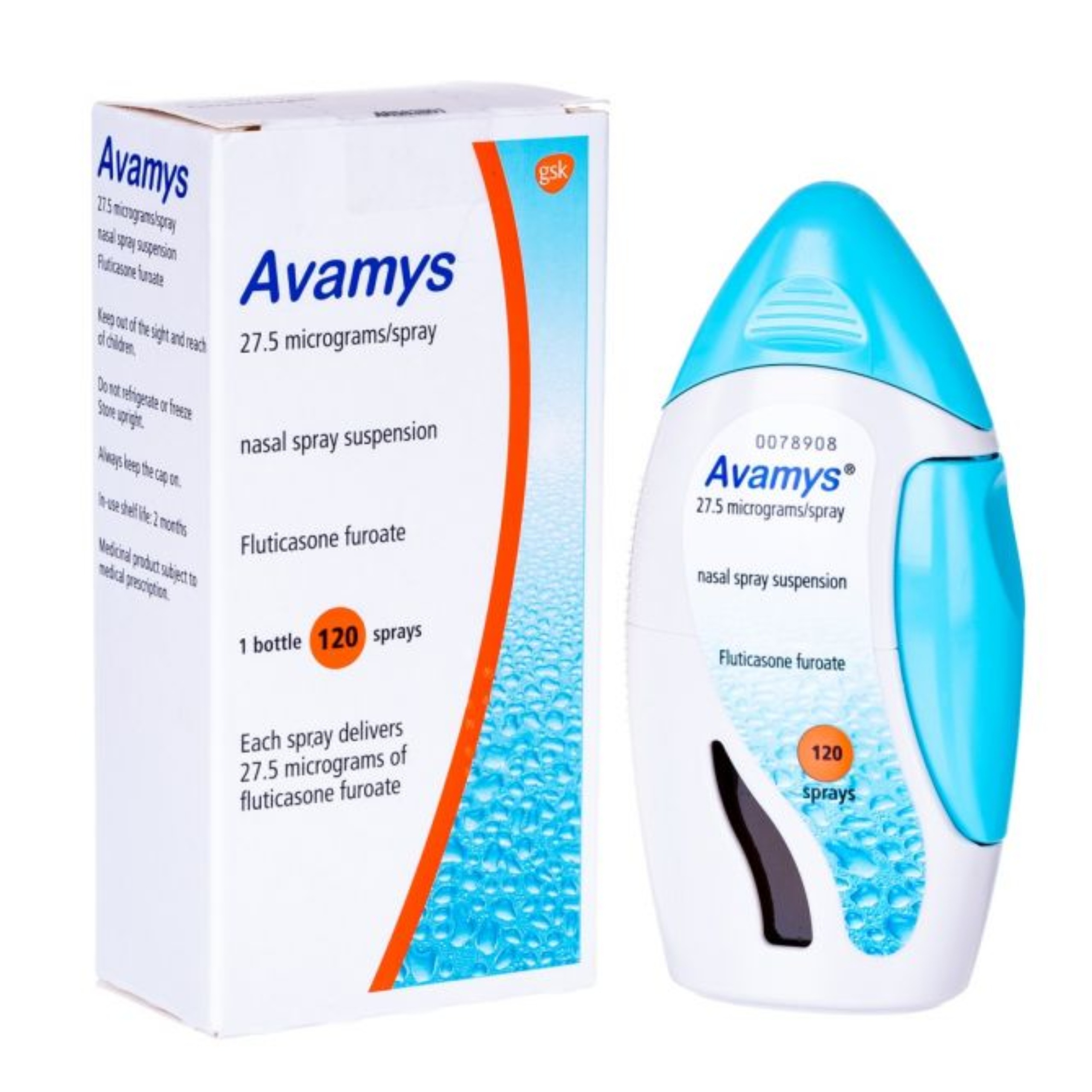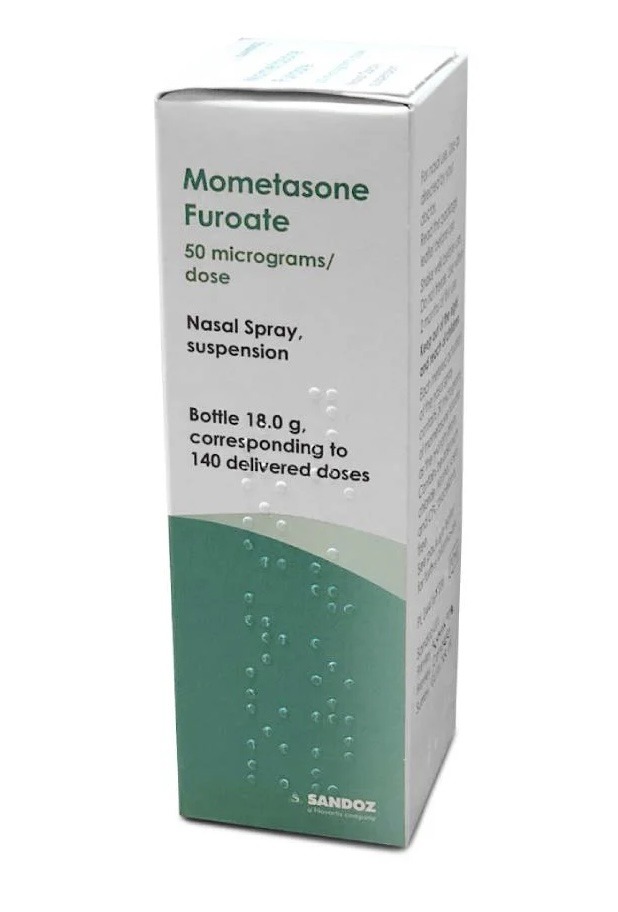Avamys Nasal Spray
Description
What is Avamis Nasal Spray?
Avamys nasal spray is a medication that is primarily used to treat inflammation of the mucous membrane and nose. It is also used to treat seasonal and perennial allergic rhinitis in adults and children above six years.
How Does Avamys Nasal Spray Work?
Allergic rhinitis is an allergic response to harmful allergens that congest the nose and cause itching, sneezing, or sore throats. Some of the harmful allergens are caused by pollen from trees, insects, moulds, pet dander among others. When harmful allergens are inhaled through the nose or mouth, the body reacts by releasing histamine, a natural chemical that responds to the foreign elements and fights them. In the process, histamine causes allergic symptoms and reactions such as a runny or blocked nose. Avamys works by blocking the production of histamine and relieving the inflammation, discomfort and irritation that they cause.
Warnings
- Avamys spray is only for external use and should not be ingested
- Inform your doctor of any underlying medical or hearing conditions
- Inform your doctor of any allergic reactions you experience
- Inform your doctor of your pregnancy and breastfeeding status.
- Do not use this medication if you have perforated nostrils without your doctor's approval
- Do not share your medication even if the other person suffers similar symptoms as yourself
- Keep the medication away from reach by pests and children
Directions
- You must take Avamys exactly as directed by your doctor or read the information on the product label.
- Shake the bottle thoroughly before use.
- Prime the spray by pointing the nozzle far from anyone, then pump down the actuator until you get a fine spray, especially if the spray has not been used for some time.
- Gently blow your nose to clear the nostrils.
- Position your head in a comfortable position, close one nostril and insert the nasal applicator into the open nostril, breathe while pressing the collar of the nasal applicator and release the spray.
- Breathe out through the mouth and repeat the process on the other nostril.
- Follow the dose instruction given by your doctor to get optimum results.
Ingredients
- The active ingredient in Avamys is fluticasone furoate.
- The inactive ingredients are glucose anhydrous, disodium edetate, dispersible cellulose, benzalkonium chloride, polysorbate 80, and purified water.
Side Effects
- Migraines
- Nose bleeds
- Wheezing
- Nasal ulceration
- Irritation and discomfort in the nose
- Swelling of the mouth
FAQs
1. How quickly does Avamys work?
Avamys can start reducing symptoms within 8 hours of use, reaching full effectiveness within 7 to 10 days of consistent application.
2. What is the recommended dosage for Avamys?
The usual starting dose for adults and adolescents over 12 years is two sprays in each nostril once daily. Once symptoms are under control, the dose may be reduced to one spray in each nostril per day. For children aged 6 to 11 years, the dose is typically one spray per nostril daily.
3. Can Avamys be used during pregnancy?
While nasal steroids are generally considered safe during pregnancy due to minimal systemic absorption, it is essential to consult a doctor before using Avamys if you are pregnant or breastfeeding.
4. Does Avamys cause drowsiness?
Drowsiness is not a commonly reported side effect of Avamys, as it primarily targets the nasal passages with minimal systemic absorption.
5. Can Avamys be used long-term?
Yes, Avamys is generally safe for long-term use. However, children using Avamys over an extended period should be monitored, as it may affect growth. Inform your doctor if you experience any visual disturbances during long-term use.



